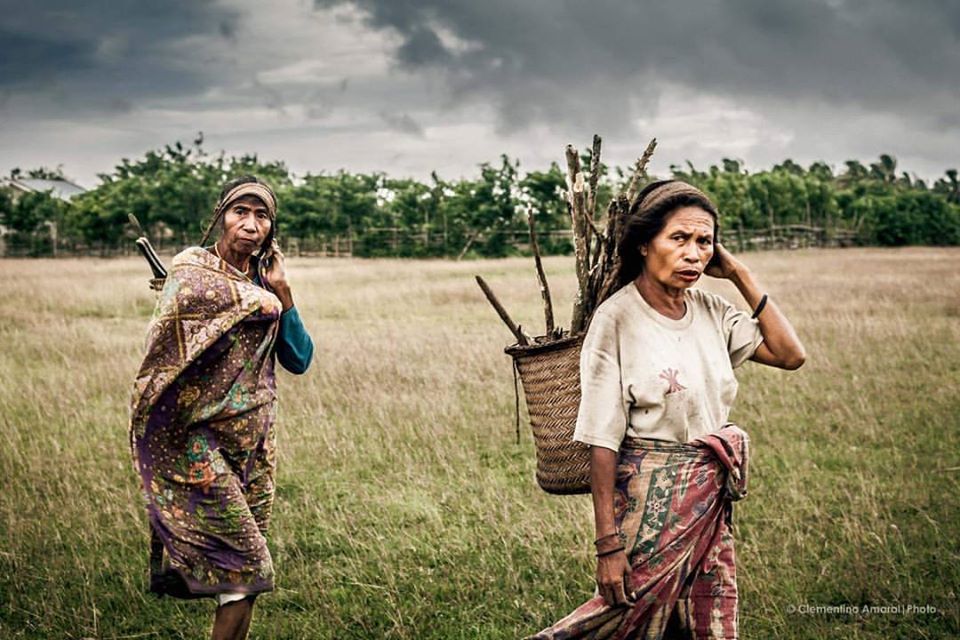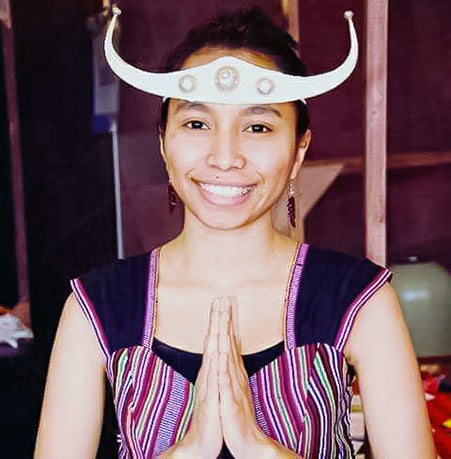Berta’s Blog
How can Timor-Leste create an economy that cares for both women and the environment?
Date: Wednesday, January 22, 2020
Author: Berta Antonieta Tilman Pereira

As a small island nation, Timor-Leste faces the threat of global warming and rising sea levels. Recently a group of environmental activists here organized a protest to pressure developed countries and multinational corporations to cut their carbon emissions instead of urging developing countries to plant trees.
Over 500 Ministers, policymakers, United Nations officials, and civil society, youth and private sector representatives gathered in Bangkok last November for the Asia-Pacific Regional Review of the Beijing Declaration and Platform for Action, a quarter century after its adoption. They discussed priority actions to speed up progress on gender equality and women’s empowerment, but they also had to tackle the climate change issue because it is directly related.
Anita Bhatia, Deputy Executive Director of UN Women, said climate change affects mostly women and girls because usually they the ones who have to go long distances fetch water for the household. In most developing countries where clean water is scarce, a woman in a rural area spends at least four hours a day fetching water. Imagine what she could do with those four hours instead.
Women also bear a disproportionate brunt of other burdens of labour in developing countries.
Asia’s economic success has been paid for by mostly marginalized women who work long hours for minimum wages while also doing most of the unpaid care work at home. Southeast Asian countries have maintained a competitive advantage in global markets by driving down wages and working conditions, particularly in sectors that employ a high proportion of women to produce food, clothes and electronics for export.
And in some parts of Timor-Leste, women do not have the same rights to land as men do.
At the Bangkok conference, Vica Larasati, a representative of the civil society groups, urged us to recognize the failure of our current economic policies and the immense damage they have done not only to the environment but also to women’s lives and livelihoods.
We need to refashion our economies so that private-sector interests do not override the interests of common people. We need economies where people aren’t displaced by mega-projects. Where everyone is guaranteed access to clean water. Where high-quality education, childcare, healthcare and reproductive healthcare are provided free to both women and men. Where people, especially women, don’t need to leave their families to find jobs in foreign lands where their basic human rights are not always respected.
At the Bangkok conference, civil society and women’s activists recommended reducing women’s unpaid work; investing in social protection and “gender-responsive” infrastructure; regulating minimum wages, particularly for female workers in both the formal and informal economies; and providing healthcare and social protection to migrant workers. Overall, we need to move from an extractive-profit and fossil fuel-based economy to a fossil fuel-free economy that is human rights-based and led by communities in the rural areas.
Some of these goals can be achieved through administrative decentralization. Governments can create strong systems to monitor and evaluate this transition. People in rural areas can be trained to do monitoring in their own villages, using a feminist participatory research method.
Instead of relying on the private sector and international non-governmental agencies, this movement should be led by the grassroots communities. There is a great need to gather local knowledge and data that local governments, if they have the political will, can use to create policies that will benefit the people.
There’s no doubt that women in Timor-Leste and across Asia have made progress. More women than ever are attending school. Maternal and infant mortality rates have dropped significantly. There’s also remarkable progress in women’s participation in politics and high-level decision making.
But let us not forget the low-paid domestic workers and the women who are still denied their rights to their land. Let us not forget that our everyday actions can help deal with the climate change crisis, which will harm the people living on small islands, especially women and children.
Let us create an economy where women and men in the local communities are the ones leading the change.

Berta Antonieta Tilman Pereira, 28, is a Timorese feminist living in Dili and a researcher at La’o Hamutuk — Institute for Development Monitoring and Analysis.
Berta’s social media accounts:
Twitter: https://twitter.com/antonietaberta
Facebook: https://web.facebook.com/antonieta.berta